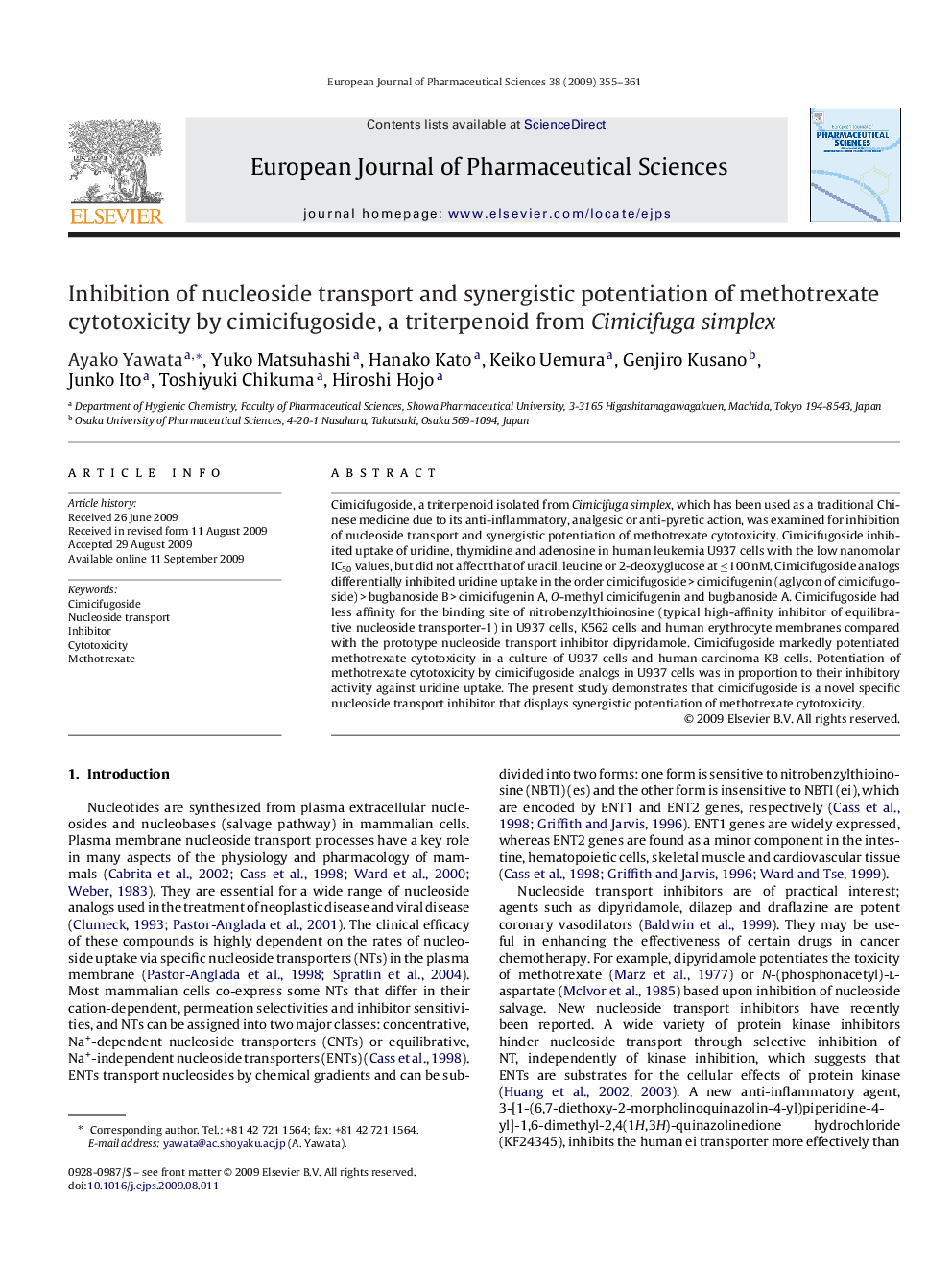| Article ID | Journal | Published Year | Pages | File Type |
|---|---|---|---|---|
| 2482202 | European Journal of Pharmaceutical Sciences | 2009 | 7 Pages |
Cimicifugoside, a triterpenoid isolated from Cimicifuga simplex, which has been used as a traditional Chinese medicine due to its anti-inflammatory, analgesic or anti-pyretic action, was examined for inhibition of nucleoside transport and synergistic potentiation of methotrexate cytotoxicity. Cimicifugoside inhibited uptake of uridine, thymidine and adenosine in human leukemia U937 cells with the low nanomolar IC50 values, but did not affect that of uracil, leucine or 2-deoxyglucose at ≤100 nM. Cimicifugoside analogs differentially inhibited uridine uptake in the order cimicifugoside > cimicifugenin (aglycon of cimicifugoside) > bugbanoside B > cimicifugenin A, O-methyl cimicifugenin and bugbanoside A. Cimicifugoside had less affinity for the binding site of nitrobenzylthioinosine (typical high-affinity inhibitor of equilibrative nucleoside transporter-1) in U937 cells, K562 cells and human erythrocyte membranes compared with the prototype nucleoside transport inhibitor dipyridamole. Cimicifugoside markedly potentiated methotrexate cytotoxicity in a culture of U937 cells and human carcinoma KB cells. Potentiation of methotrexate cytotoxicity by cimicifugoside analogs in U937 cells was in proportion to their inhibitory activity against uridine uptake. The present study demonstrates that cimicifugoside is a novel specific nucleoside transport inhibitor that displays synergistic potentiation of methotrexate cytotoxicity.
